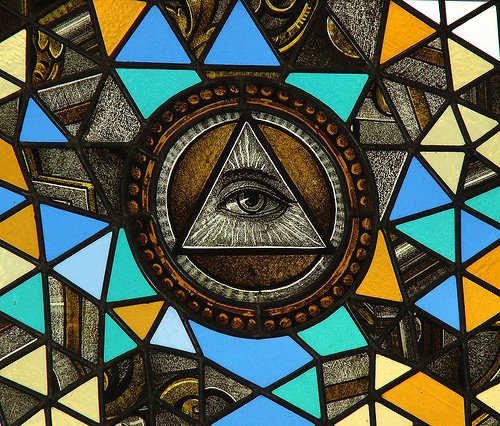Second, on with Alphabet TV!
Though actually, I should probably clarify a couple other things about it first. One is, we're waaay ahead of where I'm writing in the alphabet - I've just been slack and busy by turns. The other is that we're not binge-watching things in the traditional sense. The rule of Alphabet TV is that we watch things a season at a time, at whatever season we're currently up to. So for the last post about American Horror Story I should really have clarified that I meant Season 1.
Now, though - B is for Big Love. In case you're not familiar with it, Big Love is a dramedy about Bill (Bill Paxton) who is a fundamentalist Mormon living the Principle (ie, polygamous marriage) undercover in mainstream LDS society in Utah with his three wives and all of their children (I've actually lost count of how many there are). We're currently up to Season 3, but in this case it's actually not super-important for you to know that.
Big Love is a weird show. On the one hand, the whole deceptive undercover element is pretty interesting - and the various ruses the family use to avoid detection are pretty clever, and when it reverts to essentially being a dramedy about family under pressure it's far from the worst one I've seen. On the other, the central conflict is between Bill and his friends (the "good" polygamists) and the ultra-fundamentalist compound of Juniper Creek where Bill was raised. That is, the conflict is between "good" polygamists and "evil" polygamists. Juniper Creek is definitely warped, but it almost feels like it needs to be in order for Bill to look ordinary and decent in contrast.
Bill attempts to treat his wives with respect and dignity, but his actual belief structure dictates that he is priest-king of his own house and that his wives and children are beholden to him as a result. It's a deeply misogynistic and patriarchal structure, and seeing the dictator attempt to be benign doesn't really change that. There are also troublesome elements of the history of Mormonism as a whole which briefly surface, then disappear without much attention. I'm thinking specifically of the overt racism in some of the early doctrines, which is raised by a random black walk-on character and never mentioned again.
That said, you don't have to take the characters' beliefs on to enjoy the show. The acting is largely great - especially Harry Dean Stanton who brings a peculiar beauty and melancholy to the role of the head of the Juniper Creek compound - and the relationships between the characters play out in consistently interesting ways.
Maybe check it out, see what you think?
Bill attempts to treat his wives with respect and dignity, but his actual belief structure dictates that he is priest-king of his own house and that his wives and children are beholden to him as a result. It's a deeply misogynistic and patriarchal structure, and seeing the dictator attempt to be benign doesn't really change that. There are also troublesome elements of the history of Mormonism as a whole which briefly surface, then disappear without much attention. I'm thinking specifically of the overt racism in some of the early doctrines, which is raised by a random black walk-on character and never mentioned again.
That said, you don't have to take the characters' beliefs on to enjoy the show. The acting is largely great - especially Harry Dean Stanton who brings a peculiar beauty and melancholy to the role of the head of the Juniper Creek compound - and the relationships between the characters play out in consistently interesting ways.
Maybe check it out, see what you think?
